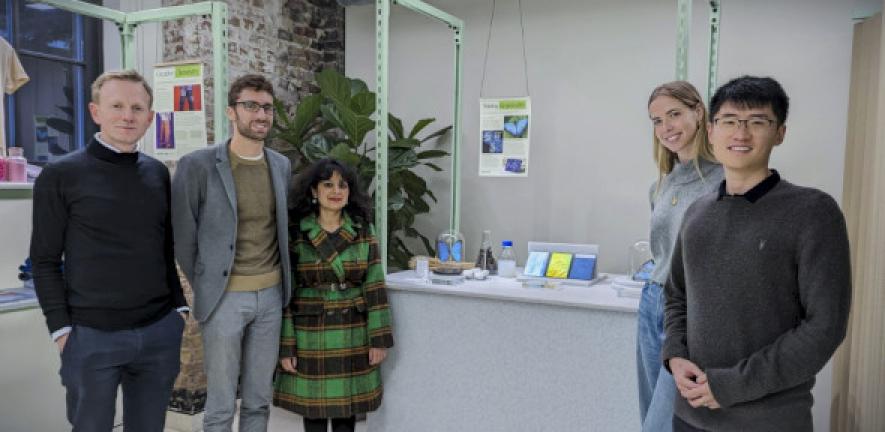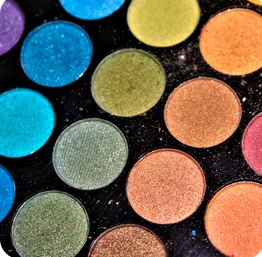
 Sparxell, a combination of the words “sparkle” and “cellulose,” has developed a range of cellulose-based pigments, based on research from Professor Silvia Vignolini’s Bio-inspired Photonics research group. The vibrant glitters, sequins and films contain no mica and no titania, and are entirely biodegradable, with the least possible impact on the environment. They can be used in cosmetics, food and beverages, packaging, paints and many other industries.
Sparxell, a combination of the words “sparkle” and “cellulose,” has developed a range of cellulose-based pigments, based on research from Professor Silvia Vignolini’s Bio-inspired Photonics research group. The vibrant glitters, sequins and films contain no mica and no titania, and are entirely biodegradable, with the least possible impact on the environment. They can be used in cosmetics, food and beverages, packaging, paints and many other industries.
Dr Benjamin Droguet, who founded the company as a postdoctoral researcher in the Vignolini group and is now Sparxell’s CEO, says: “Nature has always been the ultimate problem solver, and we’ve harnessed this wisdom to create sustainable colours solutions. Winning the Biomimicry Institute prize is a testament to our commitment to environmental stewardship and innovation on global issues.”
“We are proud to support Sparxell as the 2023 recipient of the Ray of Hope Prize for their work to eliminate toxic chemicals from colourants,” says Dr Sarah McInerney, Ray of Hope Program Manager at the Biomimicry Institute. “The incredible Sparxell team has developed a truly unique performance pigment from plant-based cellulose and in the process has set a new eco standard for a diversity of industries. As a platform technology, the potential environmental and social impact of this solution is huge. We couldn’t be more excited to support them on their journey.”
The Ray of Hope Prize is awarded each year to the world’s top nature-inspired startup, after ten finalist teams conclude a ten-week accelerator programme. The finalists and winners were chosen through a series of expert judging panels, which included investors and trusted experts in the fields of biomimicry, industry and entrepreneurship.
The 2023 Ray of Hope Prize was made possible by the Biomimicry Institute’s partners, the Ray C. Anderson Foundation, with support from the Bentley Environmental Foundation, and L’Oréal.
The Biomimicry Institute is a not-for-profit organization founded in 2006 that empowers people to seek nature-inspired solutions for a healthy planet.
Sparxell will receive $100,000 to help it continue to develop its biodegradable and sustainable pigments. The Institute stated: “Sparxell is showing how nature can colour our world without the harmful environmental and societal effects of mined and synthetic minerals.”
Benjamin says: “Let’s continue to build a world where nature’s brilliance guides our path to a greener and more harmonious existence.”

